Last week, Indonesian netizens had caused quite a stir on the internet. The strong reaction stemmed from the enforcement by the Ministry of Communications and Information Technology (Kominfo) where all international electronic system organizers (PSE) needed to register in their system to avoid having their platform blocked in Indonesia.
The goal of the policy is to mainly protect Indonesia’s public access to digital platforms, maintain the digital space, have an established system as well as visibility towards all operating PSEs in Indonesia and most importantly – to have a fair system between domestic and foreign PSEs. While this sounds like a well-intentioned step for the Indonesian people, many swiftly disagreed.
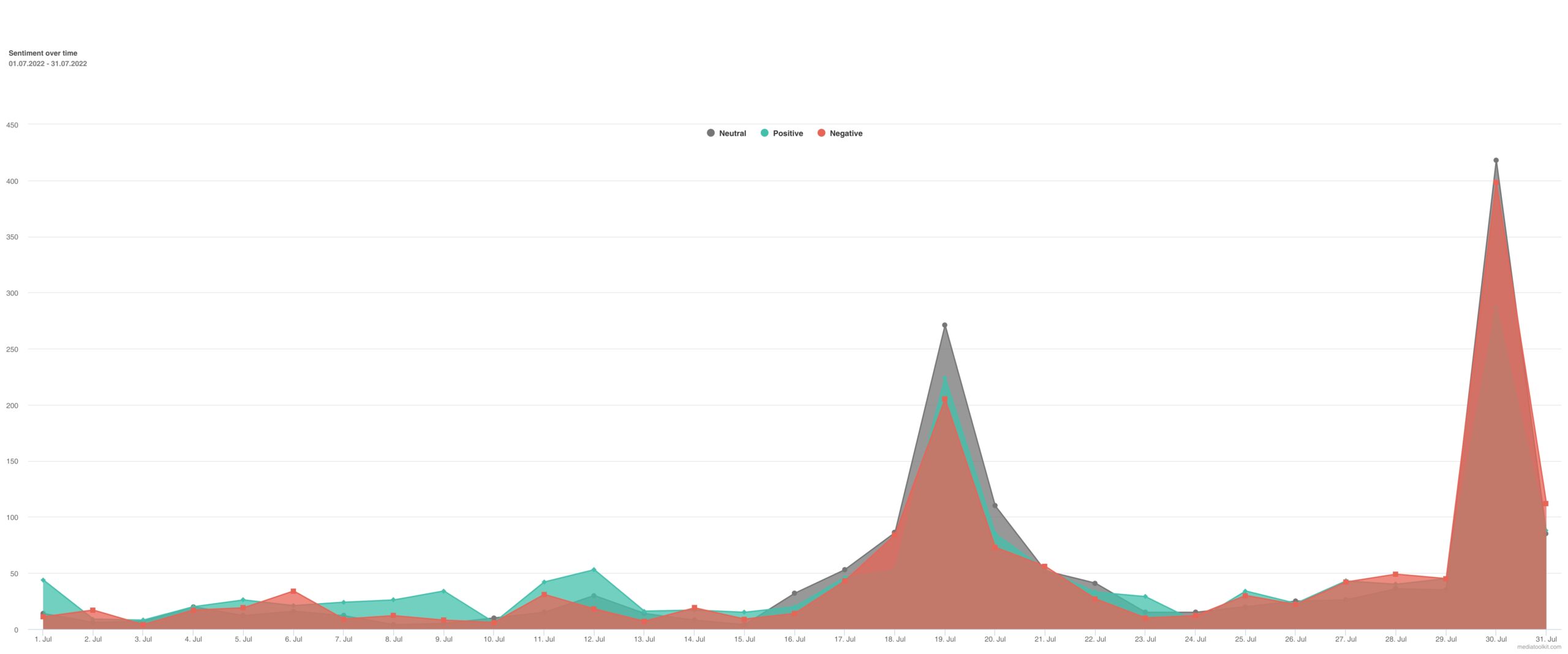
Based on our collected data, the reactions by netizens were mainly negative with a major backlash occurring over the weekend when they discovered their PayPal accounts (and other gaming platforms like Steam) were blocked. From a total of 4509 tweets analyzed which reached over 168 million impressions combined, over 49% of the audience were reacting negatively to the news with a peak reaction on Saturday 30th of July.
Netizens were criticizing the lack of thought process towards the implementation and how it felt like they were being policed on the internet. Sentiments included feeling that Kominfo was not educated enough to make these decisions and was being too rigid with the policies.
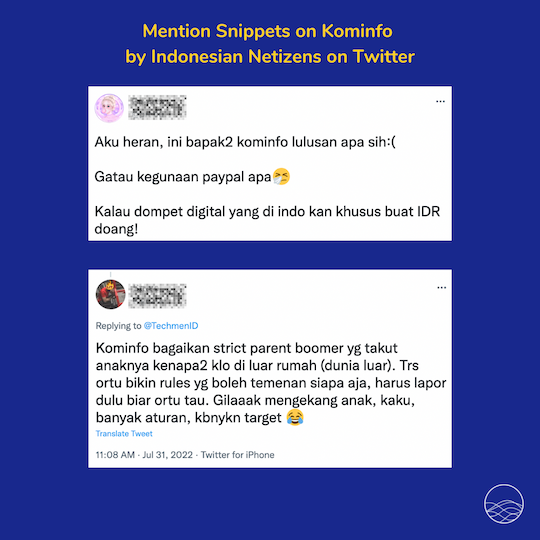
Thankfully, it didn’t take long for Kominfo to react to the netizen’s sentiments. Soon after the backlash, the government made an announcement that Indonesians will temporarily have access to PayPal for the next five days – which should give them time to manage their accounts effectively or for PayPal to register with Kominfo.
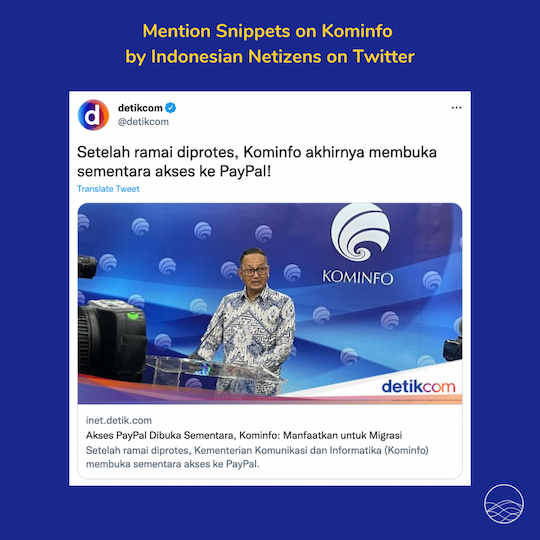
While this was a positive step towards crisis communications, it served as a quick fix that many netizens still felt was not satisfactory. Overnight, netizens kicked off a hashtag #BlokirKominfo which gathered a total of 6593 mentions and reached up to 42.1 million impressions.
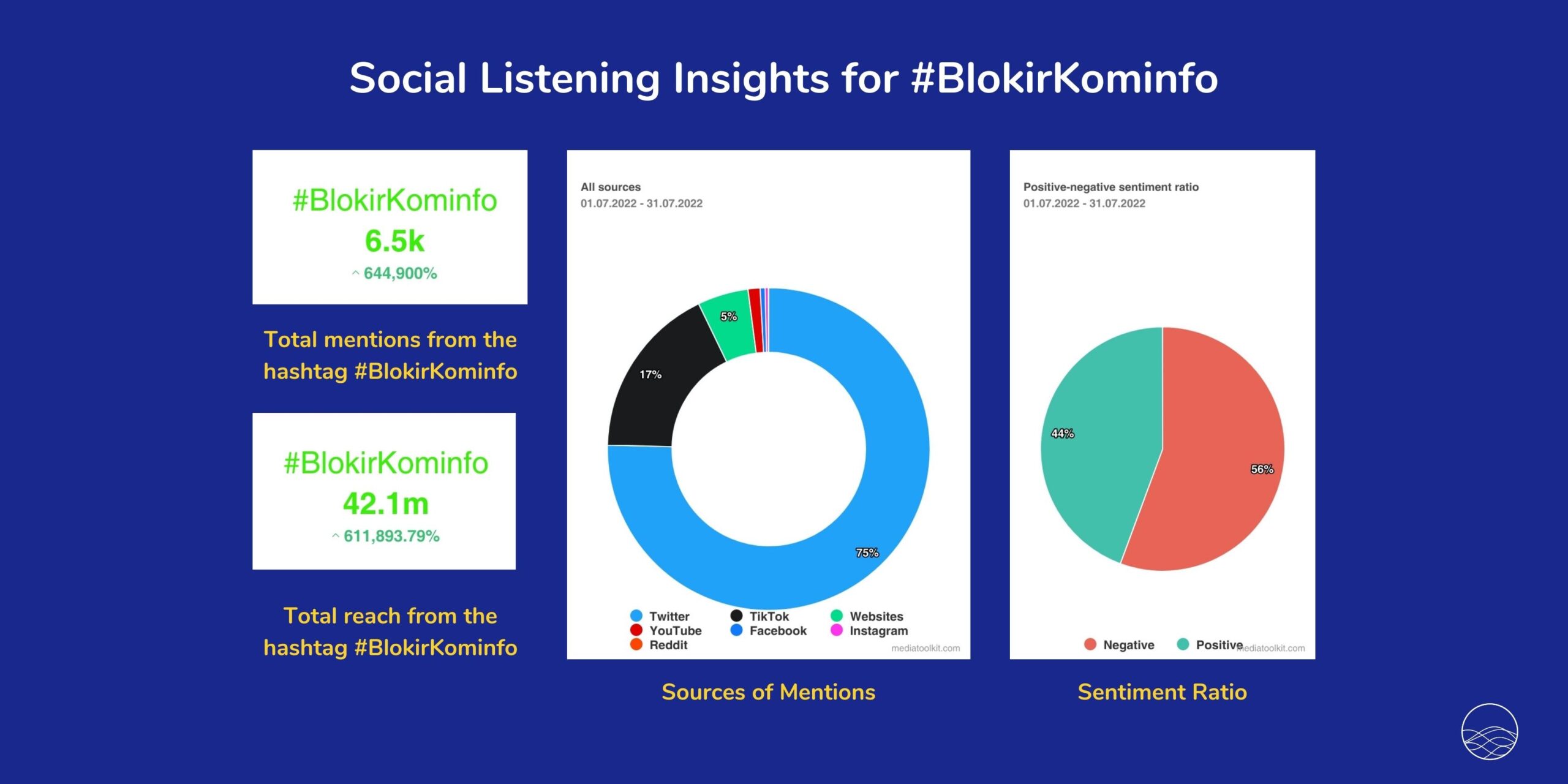
The frustrations expressed included the fact that the policy itself is still unclear and should not be rushed into implementation without proper assessments in place. Many of the protests were originating from younger audiences such as university associations and students who are passionate about e-sports and gaming.
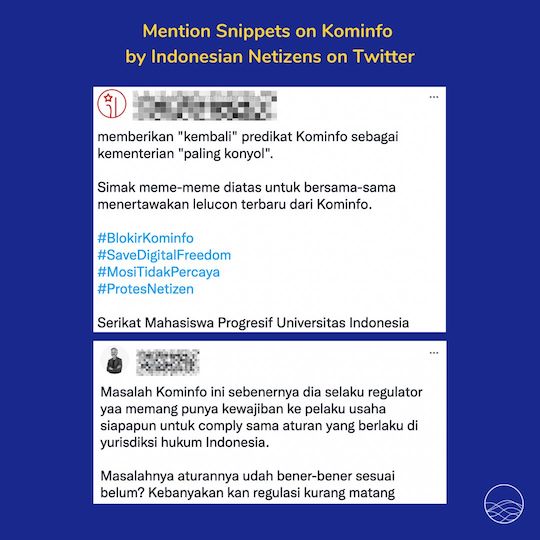
With platforms like Steam being impacted, Indonesian netizens rallied to ensure these platforms stayed accessible. Within 24 hours, they managed to register the company – which was celebrated by netizens.
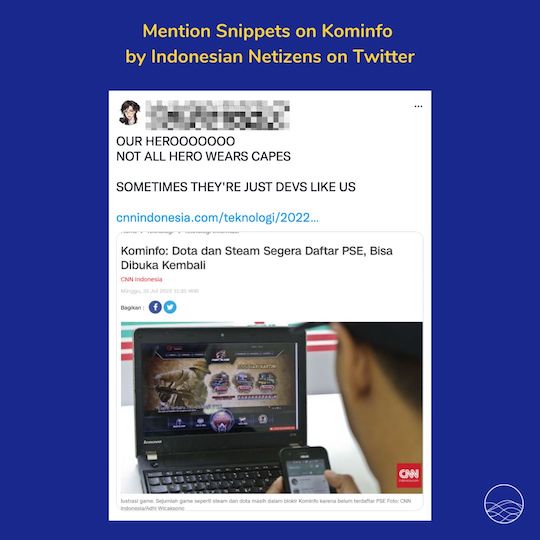
Whilst this policy has been planned for months, many netizens only began rallying when they realized the platforms that had not registered will impact their daily life. Despite the last-minute efforts, the collective voice of the netizens and the quick action taken by Kominfo indicates that change can happen swiftly if policies are actively monitored and addressed.
For any communications expert implementing crisis management, here are some key takeaways we can learn from this case:
- Utilize social listening tools to ease your social monitoring process
- If possible, create a selection of potential sentiments ahead of time and prepare FAQs/communication templates/press releases that can address these sentiments – this means having an initial discussion internally on the potential reactions that may occur
- Have the knowledge and understanding of the platforms the netizens are likely to be most vocal about the crisis and ensure to be actively listening to those channels.
- Work with leaders/influencers of communities ahead of any new policy implementation to educate and facilitate discussions about the policy/issues beforehand. This can also help you assess what’s the potential sentiments ahead of time between the different communities.
With the right communication and monitoring tools, crisis management can be smoothly managed. In the case of Indonesian netizens vs. Kominfo, we’d say that despite the level of backlash, the communications between both parties since the PayPal blocking fiasco seem to be addressed quite rapidly. As the situation is still unraveling, we’ll be monitoring this issue closely to see how Kominfo manages its communications with netizens.
In the meantime, we’d love to hear what you think. Do you believe Kominfo is managing the responses of Netizens effectively? Leave us a comment!
Related Posts
20.11.2020
How Social Listening Helps You Gain Competitive Advantage (Case study: Gojek VS Grab in Indonesia)
With lots of small to medium businesses rising up along with mega brands, it’s…


